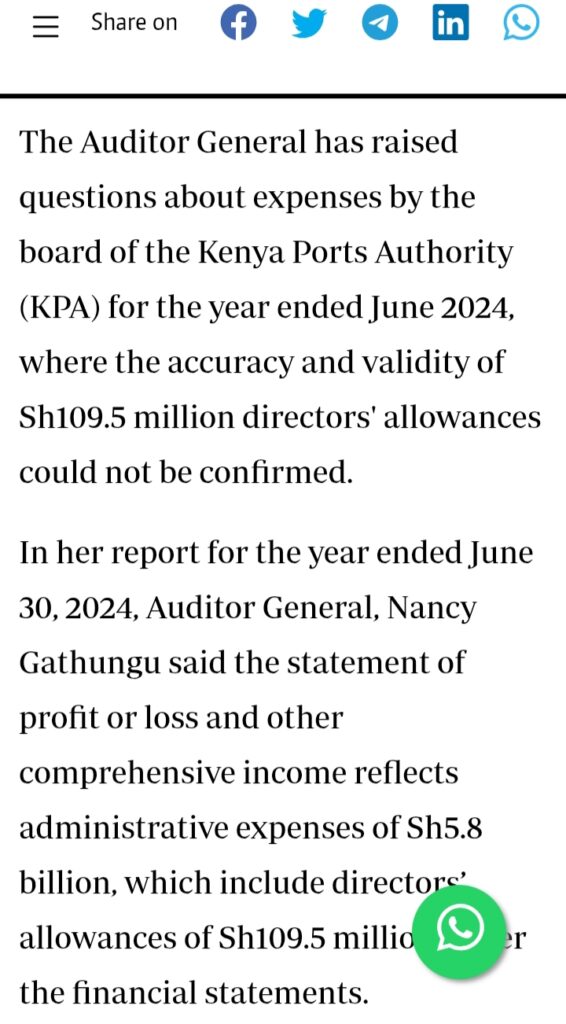The Kenya Ports Authority (KPA) has faced scrutiny over its financial management after the Auditor General flagged several irregularities in the year ended June 2024.
The report by Nancy Gathungu revealed that the authority spent Sh109.5 million on directors’ allowances, a figure far above the Sh30 million cap set by Circular No OP/CAB.9/1A of March 2020.
The circular requires board expenses to be limited to either Sh30 million or 5 percent of the operations and maintenance budget, and no approvals for the excess spending were provided by the Cabinet Secretary.
Gathungu noted that Sh45.4 million of the allowances lacked proper supporting documents such as receipts, schedules, travel documents, or details of activities undertaken.
There was also no schedule indicating payments made to each director or their attendance at meetings, making it impossible to confirm the accuracy and validity of the Sh109.5 million.
The Auditor General also raised issues with KPA’s reported bank and cash balances. While the financial statements showed Sh1.2 billion, a commercial bank account holding USD 3,105 was omitted.
An analysis of bank reconciliations further revealed uncredited receipts totaling USD 44,299 and Sh604,992, with some entries dating back to August 2017.
These discrepancies cast doubt on the completeness and accuracy of the reported bank balances.

Land ownership and valuation were also flagged as areas of concern. KPA’s property, plant, and equipment balance included Sh60 billion for land leased out.
Documents reviewed during the audit showed uncertainties in ownership and benefit flows to the authority.
Out of 29 parcels under private developers, three had not been revalued and several were involved in ongoing court cases.
This made it impossible to confirm the ownership of land valued at Sh60 billion.Sports expenditure was another area where irregularities were identified.
The authority spent Sh199.2 million on sports, including Sh135 million for Bandari Football Club, exceeding the budgeted Sh125 million.
The extra spending had no approvals and lacked supporting documents such as invoices, receipts, or travel schedules, making verification of the expenditure impossible.
Overall, the Auditor General’s report paints a picture of weak financial controls at KPA. The excess spending on directors’ allowances, unverified bank balances, unclear land ownership, and unsupported sports expenditures highlight systemic governance issues.
Without proper documentation, approvals, and accountability, the reported figures in KPA’s financial statements cannot be confirmed, raising concerns over the management of public resources and the need for stricter oversight in the authority.
The report serves as a reminder of the importance of transparency and adherence to regulations in state corporations to ensure public funds are properly managed and accounted for.





















Add Comment